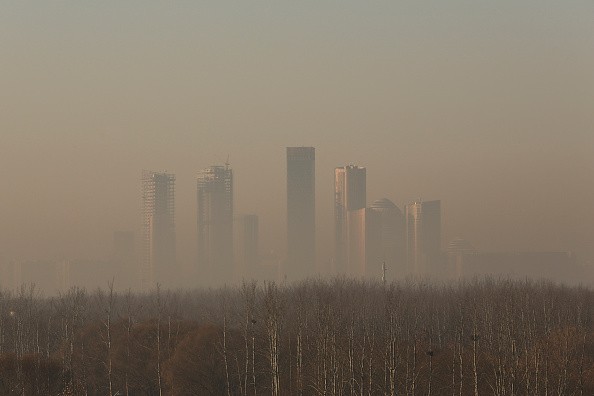As smog worsens in China, citizens are growing more and more concerned about the health effects, and have demanded the installation of more air purifiers and the heavier sanctions against violators of the environmental law.
The local government has broken its silence and vowed to intensify the battle against the smog problem this year.
"It's too early to conclude as to what extent smog will have on health," said Mao Qun'an, director of the National Health and Family Planning Commission (NHFPC) publicity center. At a press conference held last Saturday, the health authority ensured the public that there is no evidence that linked smog to cancer.
The NHFPC has been studying the health impacts of air pollution since 2013, which covers 31 provincial areas.
According to Mao, their recent data shows that as the air pollutant density drops compared to the same period in 2013, there is no significant difference in the number of patients.
The health authority has promised the public that it will be making up specific plans to help vulnerable groups, which include children and the elderly, resist the damage caused by smog. It is also planning to set standards for masks and air purifiers.
Creation of new police force
Meanwhile, Beijing's acting mayor Cai Qi has announced that it will be implementing tougher measures to improve the air quality in the city's 16 districts.
"Like many of us, I am used to checking the weather and air quality index of Beijing first thing in the morning. I totally understand the public's concern and complaints over air pollution," Cai told the media last Saturday.
Beijing will be creating an environmental police force, which will be cracking down on open-air barbeques, garbage incineration and biomass burning. The Beijing mayor said that these acts were the result of lax supervision and weak law enforcement.
Last year, Beijing waged wars against the use of coal in rural areas and high pollution vehicles which resulted in a 10-percent decrease of the average concentration of PM2.5 in the air as compared to 2015. However, China still has a long way to go in its battle against smog.
"The root cause of the region's smog problems, from a long-term perspective, is an unclean industrial and energy mix, which requires big changes," said Environmental Protection Minister Chen Jining.
As China intensifies its war against the smog problem, it must be able to address its root causes in order to come up with effective solutions.



























